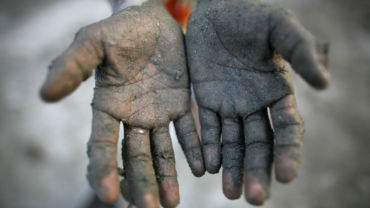Many states are trying to help human trafficking survivors clear arrests & convictions off their records if those crimes occurred when they were trafficked
Logically, survivors of human trafficking should not be punished for activities they were forced to commit by a trafficker. Yet it is common for survivors of human trafficking in the United States to have criminal arrests or convictions on their records that were incurred because of their trafficking situations. Criminal records stand in the way of survivors’ rebuilding their lives — affecting everything from the ability to find a job or a safe place to live to eligibility for programs like food stamps. In other words, survivors are being punished, de facto, for their victimization.
Since 2010, many states have tried to correct this problem, enacting laws that create a path for survivors of human trafficking to clear criminal records related to being trafficked. Unfortunately, there are still many states that have not done so or have limited relief, only for minors. The broader laws that do exist are woefully ineffective for most survivors.
State Report Cards: Grading Criminal Record Relief Laws for Survivors of Human Trafficking, analyzes and ranks the existing state laws to illuminate best practices, as well as flaws and gaps. The project — a collaboration between Polaris, the American Bar Association’s Survivor Reentry Project, Brooklyn Law School, the University of Baltimore Law School, and numerous survivor consultants — offers a roadmap for policymakers looking to enact or improve state laws and create a fair and just path to criminal record relief for survivors of human trafficking.
Defining Criminal Record Relief?
While admittedly clunky, the term “criminal record relief statutes” represents the full range of statutes that allow for some form of setting aside an arrest or conviction and prohibiting disclosure of its existence.

pul
While there is no official nationwide data on how many trafficking survivors have a criminal record as a result of their victimization, we do know that people in trafficking situations are frequently arrested, detained, prosecuted, convicted, incarcerated, or deported without ever being identified as a victim of human trafficking by the criminal legal system.
When trafficking survivors encounter law enforcement for the first time they generally do so as offenders, not victims. Sex trafficking victims are commonly arrested on prostitution charges, or for other crimes such as possession of weapons, drugs, or identity theft — all of which may well have been orchestrated in some way by their trafficker. Labor traffickers may force their victims to manufacture or sell drugs or to move drugs from place to place. Labor trafficking victims can also be arrested for various things such as possession of false identification documents, financial crimes, or minor crimes like trespassing. Children who are trafficked for both sex or labor are often charged with status offenses like truancy and running away.
A criminal record has a profound impact on the ability of any individual to obtain future gainful employment and find affordable and safe housing. Employers and landlords often run background checks and can exclude survivors based on their past convictions. Individuals with criminal records may be unable to begin or continue their education at college, obtain financial aid for tuition, retain custody of their children, and it can affect an individual’s access to crucial government benefits. For foreign national survivors, their ability to remain and/or work in the United States depends greatly on their criminal record.
In 2010, New York became the first state to enact criminal records relief specifically for trafficking survivors. The New York law allowed survivors of trafficking to vacate prostitution and related convictions that were a result of having been trafficked.
Today, all but six remaining states (Alaska, Iowa, Maine, Minnesota, South Dakota, and Virginia) and the federal government offer some form of criminal record relief specific for survivors of trafficking. Some states (Georgia, Louisiana, Missouri, and Tennessee) restrict relief to only minor victims. Most states received failing grades on providing effective relief to survivors.

There are steps forward though. Enacting new legislation or amending existing laws is the first and most important step toward creating a consistent and fair system that supports survivors. These laws must also be comprehensive. They must cover all types and levels of offenses that survivors can be compelled to commit. More reasonable time limits or no time limits or wait times for survivors to apply for relief should be instituted. Statutes should allow survivors to waive their right to appear in court or grant them the ability to utilize alternative methods of appearance if safety is a concern. These statutes should include provisions designed to protect confidentiality throughout the process to protect a survivor’s identity.
Thankfully, six states currently have legislation that is being drafted or is in some stage of consideration that would increase relief. Of course, the work of supporting survivors does not begin and end with the passage of a law. There must, for example, be consistent and reasonable implementing regulations, data collection, and financial resources available so that we can learn what works and make additional improvements and corrections along the way.
The hope, though, is that this report and the report cards will become a tool for policymakers and advocates to identify where there is room for improvement. They will be a resource for states that want to begin the process of drafting or amending existing state law.
This blog post was written by Erin Marsh, a Data and Research Associate at Polaris. If you would like more information about criminal record relief for survivors of human trafficking, visit www.polarisproject.org/recordrelief or email us at recordrelief@polarisproject.org.







